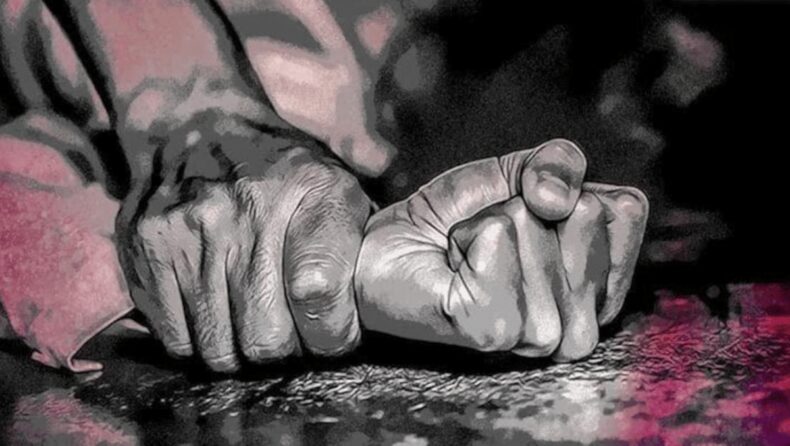“The meaning of rape must thereof be understood as including marital rape, solely for the purposes of the MTP, i.e., the Medical Termination of Pregnancy Act and any rules and regulations framed thereunder.”

Why is marital rape being investigated once more?
Section 375 of the Indian Penal Code (IPC) defines rape as sexual intercourse against the will and consent of a woman.
But Exception 2 to Section 375 says sexual intercourse by a man with his wife who is aged 15 or above is not considered rape even if it is without her consent and against her will.
On September 29, a three-judge bench led by Justice DY Chandrachud allowed a woman to seek medical termination of her pregnancy due to non-consensual sexual intercourse performed by her husband.
Notably, marital rape was not included in the definition of rape, but only a legal fiction was added to allow for a medical termination.
Exception 2 to Section 375 said, “The meaning of rape must thereof be understood as including marital rape, solely for the purposes of the MTP, i.e., the Medical Termination of Pregnancy Act and any rules and regulations framed thereunder.”
However, it said the constitutional validity of Exception 2 to Section 375 would be decided in the petitions against the Delhi High Court’s split verdict on marital rape. Marital rape was once again exempted from criminalization with a little legal fiction added to it.
While the Law Commission (172nd report, 2000) has opposed the criminalizing of marital rape, the Justice JS Verma Committee (2013) has supported it.

Why marital rape should be criminalized?
Using a wife’s body for sexual pleasure against her will is undoubted “rape”. Marrying doesn’t provide a man with the right to exploit or force sex. Even if the tables were turned and a wife forced her partner for sex, it would be equally construed as rape.
It is a myth that marital rape is less than any other form of sexual violence, as it leads to serious, consequential emotional and physical effects.
Consequences of women suffering from marital rape frequently
1. Physical effects include injuries to the vaginal and anal areas; lacerations; soreness; bruising; torn muscles; fatigue; vomiting; broken bones, black eyes, bloody noses, etc.
2. Gynecological effects include vaginal stretching, pelvic inflammation, unwanted pregnancies, miscarriages, sexually transmitted diseases, infertility, stillbirths, HIV, bladder infections, etc.
3. Short-term psychological effects include anxiety, shock, intense fear, vulnerability, suicidal thoughts, etc.
4. Long-term psychological effects include disordered sleeping and eating, negative self-image, lower self-esteem, sexual dysfunction, intimacy problems, etc.
What is holding back the Supreme Court from criminalizing marital rape?
The centre firmly maintained that criminalizing marital rape would lead to far-reaching socio-legal implications. India is one of the 150 countries that doesn’t have a law on marital rape.
Getting into a marriage in India is a sign that the couple has “agreed upon having sex with each other by their mutual matrimonial consent and contract that the wife has given up herself in this kind to the husband.” The couple devotes themselves not only emotionally but also physically.
Way ahead
Only a woman has the right to her body, and no form of the institution could justify the rape of a married woman. Marriage is an agreement between the couple to first understand each other and have their own individualities.
It does not only involve physical intimacy between the couple, but a lot more than that. People who justify marital rape by saying, “When a man won’t get sex at his home, then he will have to go out and rape.” should feel ashamed of themselves.
A married woman’s body is no solution to erase a man’s desperation for sexual needs. Sexual intercourse is sacred between two partners and must only be performed when there is consent from both sides.
It cannot be regarded as a burden, but rather as a pleasure or form of love that must not exploit any of the partners by force.
Read more: Abortion & Marital Rape: SC Gives Hope to Indians













